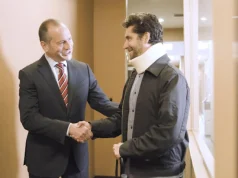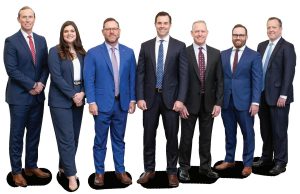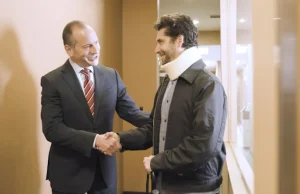When someone survives a serious crime and chooses to help investigators, immigration relief shouldn’t be another source of fear. The U visa program was built to recognize that cooperation and provide a path to stability while cases move forward. In the sections below, you’ll learn how eligibility works, what documents make the strongest record, and what benefits and responsibilities come with this relief. We’ll also unpack how law enforcement certification fits into the process and how recent 2025 policy updates are speeding up reviews. If you’re exploring U Visa Nonimmigrant Status or guiding a loved one through it, experienced teams like Nanthaveth and Associates can help translate complex rules into a clear, practical plan.
Eligibility Rules for Victims Seeking U Visa Protection
Qualifying for protection starts with three core elements: a qualifying crime, harm to the victim, and meaningful cooperation with authorities. The crime must have occurred in the United States or violated U.S. law and typically includes offenses such as domestic violence, sexual assault, trafficking, stalking, felonious assault, extortion, and similar serious crimes. The applicant must have suffered substantial physical or mental abuse, a standard that takes into account the nature of the crime and its impact rather than requiring hospitalization or a police-documented injury. Applicants also need to possess information about the incident and be helpful to an investigation or prosecution, even if the case ultimately results in no charges or a plea. Finally, individuals who are otherwise inadmissible may request a discretionary waiver to move forward.
Key qualifying elements explained
Helpfulness is not a one-time act; it’s about a pattern of cooperation, from reporting to responding to follow-up requests within reason. For victims who are minors, or where the direct victim has passed away or is incapacitated, certain close family members may qualify as “indirect” or “bystander” victims when permitted by law. Derivative status can extend to spouses and children of the principal applicant—and if the principal is under 21, it may also include parents and unmarried siblings under specific conditions. If you’re seeking U Visa Nonimmigrant Status, note that immigration officials will review your credibility and the overall consistency of your evidence, not just police paperwork. Where prior immigration or criminal issues exist, a carefully prepared waiver request can address rehabilitation, equities, and community ties.
Documentation Requirements for a Strong U Visa Case
A complete and well-organized filing is essential to reducing delays and maximizing approval odds. You’ll submit Form I-918 for the principal applicant, and if applicable, Supplements A for qualifying family members. The linchpin of the packet is the Form I-918, Supplement B, a certification from a law enforcement agency confirming that the applicant was or is helpful in an investigation or prosecution. Strong cases typically include a detailed personal declaration describing the crime, harm, and cooperation; police reports or charging documents; medical and mental health records; and any evidence showing the crime’s impact and location. Identity documents, proof of presence in the United States, and certified translations round out a solid submission.
Building persuasive, well-organized evidence
Your declaration should read like a clear timeline: what happened, who was involved, how you helped, and how the harm continues to affect you. Corroborating materials—counselor letters, medical notes, shelter intake forms, restraining orders, or messages from prosecutors—create a consistent thread that supports the personal statement. Make sure the Supplement B is signed by an authorized official and is current when you file; if it lapses, ask about renewal well before submission. Applicants with prior immigration issues should include a candid explanation and any rehabilitation or community-service records to support a discretionary waiver. Organized folders, legible copies, and straightforward explanations help reviewers quickly locate what they need and minimize requests for more evidence.
Benefits of U Nonimmigrant Status for Survivors
Beyond protection from removal, the status delivers tangible stability that allows survivors to rebuild. Approved applicants typically receive an initial grant of up to four years, with eligibility for an Employment Authorization Document that opens the door to lawful work. After three years of continuous presence in the United States while maintaining cooperation with authorities, many principals can apply for permanent residence if other conditions are met. Qualifying family members may also receive derivative benefits, promoting family unity that is essential to recovery. For those awaiting a decision, interim protections—like deferred action and an early work permit when a bona fide submission is confirmed—help bridge long wait times.
Stability that enables recovery
With the ability to work, access health services, and move forward without the immediate threat of deportation, survivors can focus on healing and participating in legal proceedings. Many states allow those with valid work authorization to apply for driver’s licenses, enroll children in school without fear, and secure safe housing. Travel outside the country requires caution and planning, often with advance parole, to preserve eligibility and avoid triggering bars. Maintaining communication with investigators and prosecutors remains important, because cooperation is a continuing requirement tied to the original purpose of the relief. For individuals exploring U Visa Nonimmigrant Status, these benefits represent a bridge from crisis to a durable future.
Role of Law Enforcement Certification in the Process
The Supplement B certification is the gateway that confirms a victim’s cooperation and links the immigration process to a real criminal matter. It may be signed by a range of entities such as police departments, sheriff’s offices, district attorneys, judges in certain jurisdictions, and child protective services units where permitted. The certifying agency attests that the applicant is, was, or is likely to be helpful in detecting, investigating, or prosecuting a qualifying crime. Importantly, certification does not require a conviction or even formal charges; the focus is on cooperation. Because agencies have discretion, survivors and advocates often need to explain the purpose of certification and how it supports public safety.
Building a respectful relationship
Approach the request with professionalism, provide organized records, and explain how your cooperation helped or will help the case move forward. Some jurisdictions have designated liaisons or established policies; others may require outreach to supervisors or the prosecutor’s office. If an initial request is denied, it can be appropriate—while remaining courteous—to ask what additional documentation could satisfy concerns or to seek certification from another qualified agency involved in the incident. Experienced counsel, including teams like Nanthaveth and Associates, often know agency preferences and can frame requests with the right level of detail. Staying responsive to follow-up questions demonstrates ongoing helpfulness and can improve the chances of receiving or renewing certification.
2025 Policy Improvements Enhancing Processing Speeds
In 2025, agency refinements focused on making reviews faster and more predictable without weakening security checks. USCIS expanded triage for complete filings, increased dedicated staffing, and clarified when biometrics from prior applications can be reused to cut weeks off processing. The bona fide determination process has been streamlined so more applicants who submit thorough packets can obtain early work authorization while their cases proceed. Clearer standards for Requests for Evidence now aim to reduce repetitive or piecemeal inquiries, encouraging applicants to submit comprehensive materials up front. These adjustments reflect a broader commitment to timely decisions for survivors who are aiding investigations.
What applicants can do now
Applicants can benefit from these changes by filing clean, well-indexed packets that anticipate the most common questions, such as proof of harm, jurisdiction, and cooperation. Keeping contact details current, responding quickly to notices, and using online case tools for updates and address changes prevent avoidable delays. If safety risks escalate, applicants may ask about discretionary prioritization, supported by evidence from advocates or prosecutors. Those seeking U Visa Nonimmigrant Status should also prepare for biometrics early, gather identity documents in advance, and organize medical and counseling records to ensure a straightforward review. While processing times can still vary, proactive preparation now aligns well with the 2025 emphasis on completeness and clarity.
How U Visas Support Safety and Justice for Victims
The program’s design recognizes that many crimes go unreported when victims fear deportation, retaliation, or disbelief. By providing a path to lawful presence and work, this relief encourages survivors to come forward with information that helps stop abusers and traffickers. Prosecutors and investigators gain credible witnesses, more robust evidence, and stronger cases, all of which improve conviction rates and deter repeat offenses. Families gain stability, which reduces the leverage abusers hold over them and supports long-term healing. This balance of compassion and accountability strengthens community trust in the justice system, especially in neighborhoods where fear previously kept doors closed.
Community ripple effects
When survivors can report crimes without jeopardizing their future, schools, clinics, and employers see fewer crises and more continuity in students’ and workers’ lives. Law enforcement agencies benefit from community cooperation, and their victim services units can connect people to shelters, counseling, and court advocacy more effectively. Local nonprofits and legal clinics collaborate with prosecutors to train officers on trauma-informed interviewing, which improves both case outcomes and survivor well-being. Individuals who need guidance with evidence collection or agency requests often turn to experienced immigration practitioners; firms such as Nanthaveth and Associates can coordinate with advocates and law enforcement to keep cases moving. Over time, these partnerships reduce impunity, rebuild trust, and make it safer for others to seek help.









